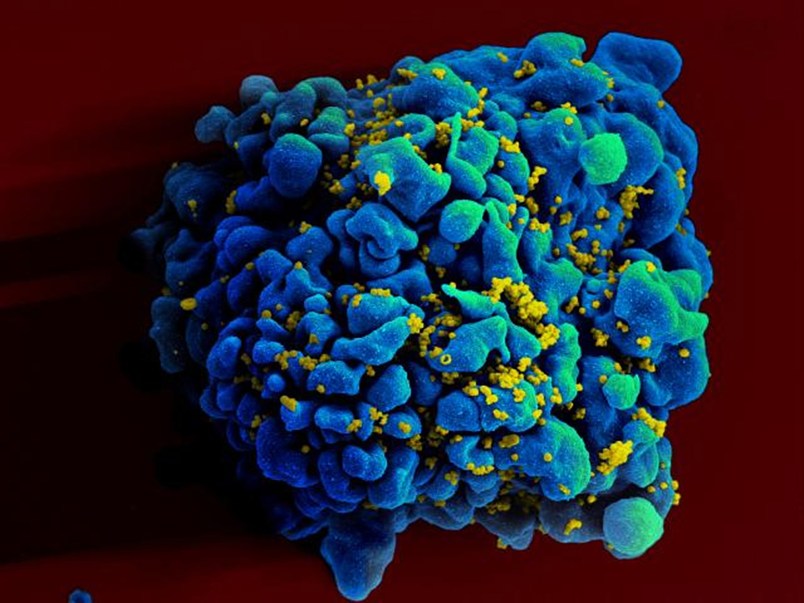Here is a brief follow-up on the question TPM Reader MA addresses in an earlier post: why does the Trump administration have it in for biomedical/disease research? It’s a really good question and one I have not seen an adequate explanation for. But having been reporting on this for a few months now I think I do get the outlines of it.
First, let me address a related point. There is a fascinating dynamic at play at the heart of this. The fascination is depleted somewhat by the stakes. There is immense potential political power in the defense and expansion of biomedical research. But the stakeholders simply don’t have any experience using it: the researchers, academics, university administrators, government scientists, etc. That’s not a criticism. We don’t train these people to operate in that sphere. They exist in a highly esoteric space. As I was just explaining to a physicist today, the question of why a school bus driver and a nurse should care much about theoretical physics is a pretty good one. Why they should care about cutting-edge research into cures for cancer or Alzheimer’s is very straightforward. This entire meta-struggle is best seen as a contest over whether the biomedical research community can get on to the political playing field and deploy that potential power before the people in the administration, who actually hold a fairly weak hand, can snuff it out entirely.
Now to this question, why do they have it in for biomedical research?
The best explanation is a sort of perfect storm. Trump wants to dominate and control the universities and eliminate them as what people in his world see as a seedbed for liberal ideologies. Russ Vought has a long-pre-existing and similar aim within the federal government. At a basic level, at universities, scientific research is where the money is. The humanities don’t have big research and grant budgets. If you want to bring the universities to heel and diminish their power that’s just where you go.
This part is fairly straightforward, pretty easy to understand, and it’s one of the most common explanations. A number of separate factors are also in the mix that, together, have added immense energy, focus and power to this push.
First, you have Elon Musk, the belief that AI can and will essentially replace research scientists and the related belief that AI-backed tech has essentially achieved a kind of escape velocity from government-supported science. So AI will soon replace research scientists. I, Elon (or tech generally) own the AI. So there’s no big harm shutting down this research apparatus. And since I own the AI, not only will we cure all the diseases but I’ll own all the cures! What’s not to like? This may seem like hyperbole but it is at most only a hyped up version of what these people think. This informs A LOT of the thinking behind the cuts. The aim of knocking the eggheads off their perch is easy to understand. If there’s also no downside (in terms of lost cures, lost leads in the sciences) why not?
Related to this is something I’ve picked up in discussions with a friend who is a very close and shrewd observer of the tech world. That’s the Silicon Valley class war between the folks with tens or hundreds of millions or more and the working stiffs on salaries of $400,000 or $500,000 a year. That tech “working class” salary point may sound absurd. But it really captures a big part of this. The dynamic is intensified by the ossification of tech. It used to be that the half-a-million-a-year folks might be one great start-up move away from hitting super wealth themselves. That’s not happening anymore. Meanwhile, the Elons and sub-Elons have super wealth and it’s annoying to have to listen to the gripes, the borderline-woke thinking and everything else, from the guys who fuel your wealth. A Thorstein Veblen type could explain it better than I can, but, for present purposes, we’ll settle for this thumbnail version.
Needless to say, government scientists don’t make half a million a year and neither do all but maybe a tiny elite of science grant superstars. But when the tech oligarchs in Elon’s world see these folks with their PhDs and their peer reviews and their long-ass study timelines, they see the uppity salaried techs who run their companies. And they act accordingly.
Second, you’ve got COVID. There’s always been a deep strand of anti-intellectualism on the right and hostility toward the academic world. COVID, COVID denialism and vaccine denialism have made public health and biomedical researchers a big, big bogeyman across huge swathes of the right. This one doesn’t require much explanation, I imagine. We’ve all lived through this. All biomedical researchers are hugely suspect right off the bat. Lots of vaccine “skeptics” have landed major appointments at HHS, not least among them the guy who runs the whole place.
There are a few other lines of push here against biomedical research. But I think these three things capture it. You’ve got multiple, interrelated but still very distinct factors all pushing the same direction. And that’s what gets us here.




